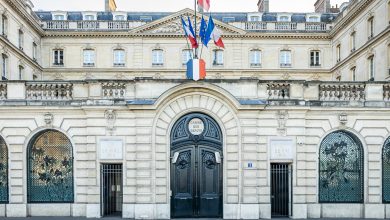The fight against poverty depends on economic freedom
Media release
Paris, November 5, 2018 – Experience shows that growth, far from being something that can be decreed, results from a reasonably favourable context. Recent history thus shows that countries with more economic freedom experience more growth, which is to say incomes and consumption levels that are high or growing for most of the population. In contrast, the least free countries sometimes don’t grow at all.
“The two Koreas provide a telling example. They shared the same culture and were at roughly the same level of development when they separated in 1948. But they subsequently followed very different paths: a good measure of economic freedom in the South, and none in the North. We know the result. GDP per capita in the South is now 20 times higher than in the North!” points out Pierre Lemieux, author of the publication.
Economic growth is not a matter of natural resources, but rather of good institutions—including the rule of law, private property, and economic freedom—insists Mr. Lemieux. “We see it in Hong Kong, a tiny, resource-poor country that nonetheless ranks as the economically freest in the world. Thanks to this economic freedom, Hong Kong’s GDP per capita had reached 130% of the French level in 1997, whereas it was just 58% in 1950,” explains Mr. Lemieux. There has been a similar shift with respect to Belgium: Hong Kong’s GDP per capita amounted to 58% of the Belgian level in 1950 but 123% in 1997.
For several decades now, many governments of poor countries have allowed greater economic freedom, helping billions of human beings escape poverty. As a result, between 1981 and 2015, the proportion of the world population living in extreme poverty (on less than $1.90 a day) fell from 42% to 10%. “This contrasts sharply with the disaster taking place right now in Venezuela, where the government tries to control everything,” adds Mr. Lemieux.
The publication also notes that certain government interventions can actually lead to growing inequality, like anticompetitive privileges (including protectionist barriers and the excessive protection of intellectual property) and subsidies to corporations. Such interventions, often called “crony capitalism,” mainly benefit the rich.
“Decision-makers should show a bias toward economic freedom, which is morally defensible and beneficial to society,” concludes Nicolas Marques, IEM Executive Director. “Citizens are the first to benefit from economic freedoms, which generate additional activity and thereby create employment and purchasing power. Public finances would also do better, due to higher revenues.”
The Economic Note entitled “What Are the Benefits of Economic Freedom?” was prepared by Pierre Lemieux, Senior Fellow at the MEI, in collaboration with Alexandre Moreau, Public Policy Analyst at the MEI. This publication is disseminated in Europe thanks to a partnership with the Institut économique Molinari.
This publication is available here: https://www.institutmolinari.org/what-are-the-benefits-of-economic,3532.html
The MEI (Montreal Economic Institute) is an independent public policy think tank. Through its publications and media appearances, the MEI stimulates debate on public policies in Quebec and across Canada by proposing reforms based on market principles and entrepreneurship.
The Institut économique Molinari (IEM, Paris-Bruxelles) has as its purpose to create greater understanding of economic phenomena and challenges and to make them more accessible to the general public. Accordingly, it conducts scientific research, organizes think tanks, produces publications and provides training and varied forms of teaching toward this end to the broadest possible audience.
Interview requests:
Cécile Philippe, President, Institut économique Molinari (IEM, Paris-Bruxelles)
Tel.: +(33) 6 78 86 98 58, E-mail: cecile@institutmolinari.org



